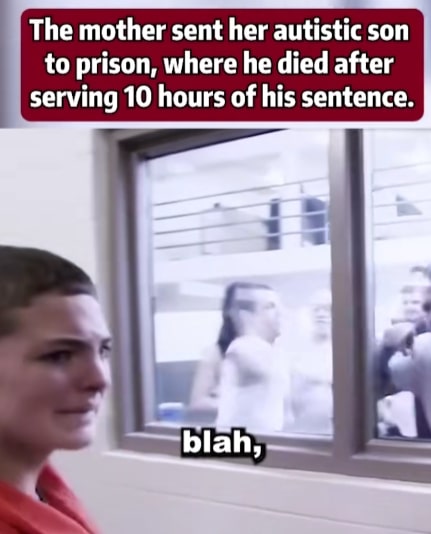A Texas judge on Friday issued a temporary restraining order stopping former Congressman Beto O’Rourke and his nonprofit organization from financially supporting state Democrats who fled Texas to delay a controversial redistricting plan. The ruling, made in response to a lawsuit filed by Attorney General Ken Paxton, marks an immediate legal blow to O’Rourke’s group and intensifies the partisan conflict over Texas’s political procedures.
Tarrant County District Judge Megan Fahey, a Republican appointee, found sufficient grounds to temporarily prohibit Powered by People — the progressive nonprofit led by O’Rourke — from continuing what the state described as “illegal fundraising activities” used to fund the legislators’ departure. The order specifically bars the group from raising funds or using those donations to cover travel, accommodations, logistical assistance, or daily fines imposed on lawmakers who absented themselves to break quorum.
State Claims Fundraising Violated the Law
In court documents, Paxton’s office argued that Powered by People solicited and collected donations that were then used to pay for expenses directly tied to political actions—namely, supporting lawmakers who left the state to obstruct the GOP’s mid-decade redistricting efforts. Texas law enforces strict regulations on political fundraising and how campaign or political-action funds can be spent, the complaint asserts, and the attorney general accused the group of breaching those rules by allegedly funding personal costs and fines.
“Defendants have engaged and will continue to engage in unlawful fundraising and use of political funds in a way that either directly violates or causes Texas Democratic Legislators to violate the law,” Judge Fahey stated in her temporary order. She also noted that donors suffered “irreparable harm” because their contributions were diverted to uses they were not informed of or that conflict with state laws.
The emergency order followed Paxton’s request for the court to stop the nonprofit’s actions while the state pursues further legal options. This restraining order is temporary, maintaining the current situation during ongoing litigation and allowing the court to review the state’s claims before deciding on a permanent injunction.
O’Rourke Promises to Fight
Shortly after the ruling, O’Rourke strongly opposed the decision, labeling the lawsuit a politically driven effort to suppress his group’s work. He accused Paxton of attempting to “shut down” Powered by People because its volunteers advocate for voting rights and oppose what O’Rourke called a partisan power grab.
“They want to intimidate those who fight so others won’t,” O’Rourke said, pledging to continue the struggle. He announced plans to attend a rally in Fort Worth against the redistricting map and declared the restraining order would not silence his movement.
O’Rourke’s supporters framed the conflict as part of a broader fight over voting access and representation in Texas. They contend that using a nonprofit to aid lawmakers in exile is a legitimate political organizing method and that donors should be free to support such efforts. They plan to challenge the court’s temporary order and escalate the case to higher courts if necessary.
Paxton: Enforcing State Law
Attorney General Ken Paxton responded to the judge’s ruling with a brief statement: “Cry more, lib,” reflecting the partisan tone of the dispute. Paxton’s office characterized the case as an enforcement issue, emphasizing that state law restricts how political contributions can be used and demands transparency about fund usage. When those laws are broken, Paxton argued, the state must intervene.
Paxton and other Republicans accuse the Democrats who fled of staging a stunt to disrupt the normal legislative process. GOP leaders say the walkout was designed to prevent passage of a redistricting map they believe reflects population changes, and that outside funding helped lawmakers sustain their absence unlawfully.
Legal and Political Implications
The case raises complex legal questions the courts must address: What constitutes a lawful use of funds raised by political nonprofits? When does support for political figures become illegal subsidization of personal expenses? How should courts balance First Amendment protections for organizers and donors with state regulations ensuring lawful governance?
Legal experts note that the temporary restraining order is a short-term measure that does not settle the underlying issues. Judge Fahey’s order halts certain activities while the state’s broader claims are examined. Either party may appeal, potentially sending the dispute through state or federal courts before a final decision.
Politically, the litigation arises at a sensitive time. Texas Republicans are pushing a redistricting plan to redraw congressional districts in ways they say reflect demographic shifts, while Democrats claim the plan is an effort to cement GOP control. The walkout and the fundraising that sustained it were tactical moves by Democrats to block the map, and now those fundraising efforts themselves face legal challenges.
Next Steps
With the restraining order active, Powered by People must immediately cease the prohibited activities outlined by the judge. The group’s leadership has vowed to contest the order, and the state will likely seek a permanent injunction if its legal claims hold up.
Observers expect a wave of legal filings and intense political debate in the coming days. The outcome could affect not only Texas’s redistricting battle but also broader issues surrounding outside funding in partisan conflicts and the limits states may place on such activities.
For now, the restraining order is a clear victory for Paxton and a setback for O’Rourke and the Democrats relying on external organizing to influence the legislature. However, the case is ongoing, and courts—possibly including higher ones—will determine whether the temporary halt becomes permanent.



